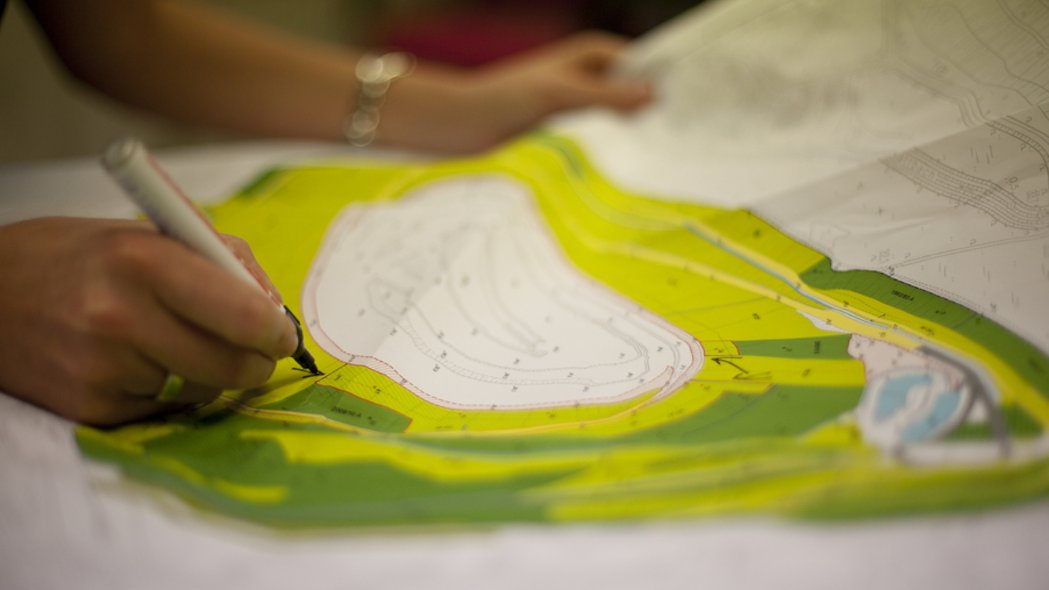Geoinformation, surveying
Whether navigation systems, satellites, localisation systems or maps - they all provide geoinformation. Geodata is also used in surveying. Students in this field learn how to collect, process and utilise the data.

Overview of the academic discipline
Geoinformatics is a relatively young scientific discipline. It develops computer-aided solutions such as navigation aids or 3D models of cities and landscapes in order to analyse and process spatial data. To do this, it uses methods from geography, geology, ecology and cartography and combines these with fundamental sciences such as mathematics and computer science.
Surveying technology or geodesy deals with the recording and processing of the earth's surface. Using modern technology - electronic total stations, satellite receivers or photogrammetry and laser scanning - the geodata collected in this way is used for the planning, monitoring and realisation of construction projects. The measurement data is analysed using software, and documented and visualised with the help of geoinformation systems and web services.
Which topics are included in the curriculum?
The undergraduate degree programme includes a range of modules from the natural sciences and mathematics as well as subject-specific topics, such as: Engineering mathematics, experimental physics, geosciences, geodata programming, statistics and geodetic computing, geodetic measurement technology, global positioning systems (GPS), engineering geodesy and geodetic point fields, evaluation methods, geoinformation and cartography, Spatial planning, land and property management, photogrammetry and remote sensing, adjustment calculation, astronomical, physical and mathematical geodesy, positioning and navigation, image processing, computer graphics / visualisation, law and business and economics.
Further study courses offer specialisation opportunities in areas such as cartography, geoinformatics or environmental information.
What are the requirements?
The degree programmes in ‘Geoinformation, Surveying’ are predominantly free-admission, in a few individual cases a pre-study internship is required, but this does not usually have to be proven until the fourth semester. In-depth knowledge of the following school subjects is a good prerequisite for a successful course of study: mathematics, geography, computer science, physics and English.
What study programmes are there to choose from?
Both universities of applied sciences and universities offer Bachelor's and Master's degree programmes in this field. The term geodesy is usually used instead of surveying; geoinformatics can also be used as a synonym for geoinformation. There are also a few dual study programmes.
Internships are an integral part of the degree programme at both universities of applied sciences and universities. Degree programmes at universities of applied sciences usually include an entire practical semester.
What job opportunities are there after graduation?
There are employment opportunities for graduates at engineering and surveying offices, construction companies, aircraft and car manufacturers and their suppliers as well as manufacturers of measurement and evaluation systems. Further job opportunities are offered by a combined officer career in the German Armed Forces, with authorities such as state surveying and land registry offices and with land consolidation authorities. There are also employment opportunities in research at universities.
